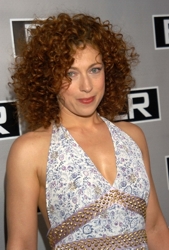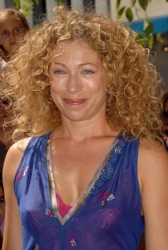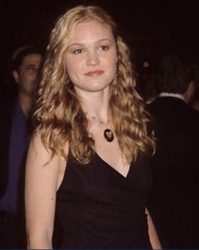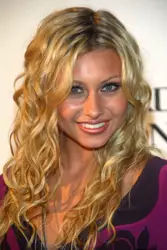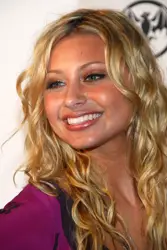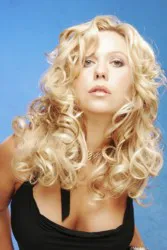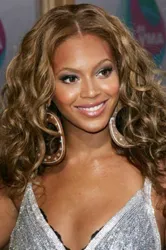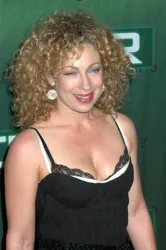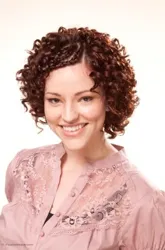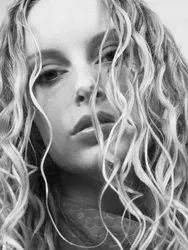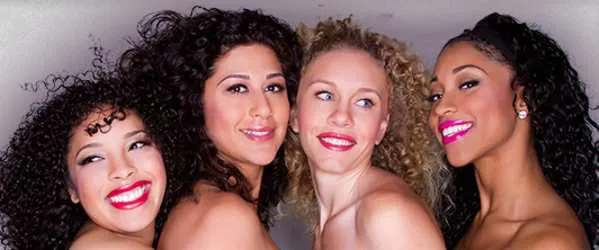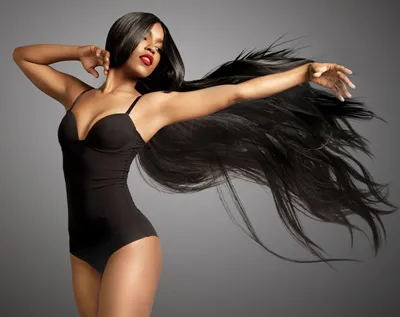
Curly Hair Hair Products
Introduction
Back in the mid-1990s when HairBoutique.com was launching their first hair focused site on the web there were very few curly hair hair products. Since that point in time the number of hair products designed solely for curly hair has literally exploded. A handful of products have given way to literally hundreds, if not thousands, of options. If you have curly hair you may wonder what hair products you should be buying for your curls. Some general guidelines can help you know what products to add to your wish list. 1. Know Your Curls Before You BuyNot all types of curls are created equally. In fact, the average person with curly hair may have more than one type of curl pattern interspersed throughout their head. While a common challenge with curly hair is dealing with dehydrated coils, frizz, fuzz or heat damage, it may not be the universal challenge. Curly hair, as originally defined by Andre Walker fits into general categories and can be organized based on type, texture and shape of the curls. While some types of curls may need tons of hydration, other types of curls may not. Generally speaking, it's rare for curly hair to fit into the one-stop-shop hair product category.
In fact, it's even possible your curls may need different products on different days of the week. 2. Understand Your Long Term Styling GoalsBefore investing in any hair product line learn everything you can about your hair's needs, moods and challenges. Pay attention as well to your own styling goals. Do you prefer to wear your hair au natural or do you like to change it up and wear your hair blown or iron straight at times? While many curl experts frown upon wearing natural hair textures in an altered style, if you love that option, just be sure to include conditioning and repair products in your list. 3. Work With A Curl StylistSince all great hairstyles start with a great hair trim or cut, work with a stylist with special training in the natural textured or curly hair arena. Not only can they help you address any persistent styling challenges, they can help you discover hair care products which will work best for your curls. 4. Don't Buy Into Advertising Hype
Although there are a dizzying array of hair care product lines which advertise they are formulate specifically for curly hair, there are many superb products which work just as well if not better than those designed specifically for natural texture. Two amazing hair product lines which work spectacularly for naturally textured hair are Phyto and Rene Furterer. Phyto has a special category of care products within the Phytospecific line which address the most common curly hair challenges. HairBoutique.com has been carrying both fabulous hair care lines in our Marketplace for close to 10 years. Many of our most satisfied curly haired customers rave about the benefits of the amazing products from each company. Are they right for everyone? Absolutely not and we'll be the first to tell you so. Although some of the products are not specifically advertised for just natural textured hair, the benefits are universal for all types, textures, lengths and conditions of hair. 5. Understand The Most Common Curly Hair Product Challenges
One of the most common challenges when selecting hair care products for curly hair is to figure out what ingredients work well for your hair. Ingredients which you might helpful might actually cause issues for other people with naturally curly or textured hair. Never lose sight of the fact that every head of curls are unique and different. Note: For detailed information about hair care product ingredients refer to http://www.cosmeticsinfo.org/index.php Listed below are some of the most common hair care ingredients which should be evaluated carefully when selecting products: 1. Sulfates & Dioxanes Sulfates which are inexpensive foaming agents are commonly found in shampoos, toothpaste, laundry detergent, dish detergent, & body washes. Found most frequently in shampoo formulas, sulfates can be harsh or damaging to gentle curls presenting long term hair challenges. On a side note, sulfates can be linked in some studies to urinary tract infections, eczema, dryness of skin, hair & scalp, allergies and hair loss. Dioxanes Dioxanes is a group of modified silicones which are known in some cases to offer hair and skin conditioning abilities, but can be irritating for others. Some of the silicones in the dioxane group are Amodimethicone, Amodimethiconol, and Trimethylsilylamodimethicone Dioxanes 1 & 4 are considered by many experts to be carcinogenic. They are banned under The California's Safe Cosmetics Act. 2. Sodium Oleth & Coceth Sulfate - May be contaminated. Linked to Dioxanes 1 & 4. It can be harsh when incorporated into shampoo.
3. Non-Water Soluble Silicones, Products With Cone Derivatives Or Siloxanes. For some types of curls silicones offer a lot of great benefits. This is not the case for everyone. For others cones can leave hair sticky, fuzzy or frizzy. Silicones act to seal the cuticles of the curls and leave a smooth, shiny finish. A key danger with silicones is that they may build-up over time. When reading labels you may notice that silicones have a cone derivative. Beware of ingredients which are -cone, -conol, -col, or -xane. 4. Water Soluble Silicones Not all silicones are the same and not all are evil. There are the type that build up on the hair over time and those which do not. The silicones which don't build up are known as water-soluble. Water soluble silicone ingredients are more likely to not build up on hair and are indicated with a PEG or PPG in front of the ingredient. As a general rule Dimethicone Copolyol, Hydrolyzed Wheat Protein Hydroxypropyl Polysiloxane and Lauryl Methicone Copolyol tend to be the most friendly water soluble silicones for natural curls. Although considered to be water soluble and generally helpful some people with curly hair have had issues with build-up from utilizing Behenoxy Dimethicone and Stearoxy Dimethicone.
5. Styling products with some types of alcohol may offer challenges for natural curls. Hairstyling products, especially gels and sprays may contain alcohol which can be drying on naturally curly or textured hair. It's important to note that some alcohols are drying and others are not. Any hair products which list denatured or denat alcohol near the top of the ingredient list could be drying. Also, you might find specific alcohol ingredients listed such as SD Alcohol-40B. 6. Cetyl Alcohol Versus Denatured Alcohol Cetyl alcohol (1-hexadecanol, palmityl alcohol, C16 alcohol, hexadecanol) can actually be okay when added to a hair products. Cetyl alcohol is a common ingredient used as a thickener or keep the product from becoming runny. This ingredients also helps keep products from being greasy although it is described as an emollient. It's often derived from coconut fatty alcohol although it can be created synthetically. Cetyl alcohol is the oldest known of the various fatty alcohols in existence. Other Curly Hair Product Ingredients To Evaluate Closely
Keeping in mind that some ingredients in products for curly hair may work for some and not for other. When reading a label the higher the ingredient to the top of the list, the higher the concentration. Additional ingredients to evaluate closely include, but are not limited to the following: 1. Formaldehye or Keratin. Although it may not impact your curls negatively this a growing concern that formaldehyde is carcinogenic. The primary concern is that when a formaldehyde-releasing preservative is in the same product that has an amine, cancer causing chemicals called nitrosamines may be ultimately formed. The jury is still out on keratin. 2. Hydantoin DMDM - A preservative and emulsifier derived from formaldehyde which is a known carcinogen. 3. Parabens - Common preservative use din some hair care products, cosmetics and skin care products. Suspected in some breast cancer studied due to the fact that it may mimic estrogen. 4. Phthalates or BPA - Potential contaminant and carcinogen. This ingredient has been being phased out due to the cancer-causing concerns and indications of an impact on human reproduction. Although the FDA found these to be generally safe in small amounts there is still a concern that they could cause irritation to some people to their skin and scalp. These are most common in baby shampoo products. 5. Magnesium Sulfate - This is a key ingredient in Epson Salts which are used in hair products. It is basically alkaline and can be damaging to delicate curls because the salt can rough up the cuticle. It can cause the cuticles to swell as a result of the salt and may contain contaminants.
6. Polyethylene Glycol - Solvent and plasticizing ingredient used in hair care products and cosmetics. 7. Cocamide DEA - Irritant known to cause irritation to scalp and skin. Thought to contain carcinogens. 8. Ammonia - May cause allergic reactions or problems with scalp and skin. SummaryWhen shopping for hair products which will work best for you and your curls always remember your hair is unique. No two heads of curly hair are alike. Take your time and read all the labels. In some cases it will require some experimentation with a range of products. When possible, buy new products in the smallest size available. Although many products which are advertised for curly hair may or may not be the best option for your hair's needs. Keep an open mind and be willing to think outside the box. - Revised Publication Date: 01/03/12 | ||||||||||||||||||||||||
| If you want to talk more about this or other hair care articles on HairBoutique.com or anywhere else, please post a message on HairBoutique.com's Hair Talk Forums.
|
Social Media Network Information
Please follow us on Twitter at: https://Twitter.com/HairBoutique. I look forward to meeting new people from all walks of Twitter and learning from their Tweets.


